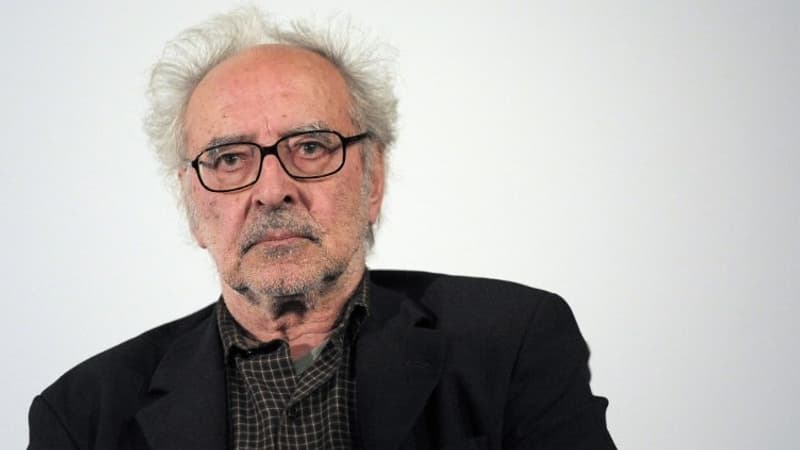A page in the history of cinema is turning. Director Jean-Luc Godard, a New Wave figure, has died at the age of 91. Provocative and inventor of forms, he revolutionized the 7th Art during a career as prolific as it was protean with films like Panting, the Contempt Y Pierrot the fou.
first critical for cinema notebookswhere he stood out with his scathing texts, Godard launched himself into the direction at the same time as his colleagues Claude Chabrol, Jacques Rivette, Eric Rohmer and François Truffaut, his rival, with whom he ended up fighting.
His first film, released in 1960, is a masterpiece. Classic that revealed Jean-Paul Belmondo, Panting It is one of the most influential films in the history of cinema. A fast-cut film noir pastiche, daring for its time, it made Godard a global star and would inspire Martin Scorsese, John Woo and Quentin Tarantino.
Godard’s method
Each one of his films, in the sixties, is an event, and allows him to go beyond the limits of censorship exploring the great themes of his time, from the war in Algeria (the little soldier) to prostitution (Live your life) to consumerism (Male Female) and Maoism (The Chinese).
His films are usually polyphonic. One of his most famous movies Contempt (1963), offers thus through the story of a couple (Brigitte Bardot and Michel Piccoli) who separate during the filming of an adaptation of The odyssey, a reflection on the 7th Art, jealousy, History and ancient mythology.
Godard had his own method of working. He often starts with a title, then sends a vague synopsis to the producer of it, which he then rushes to reinvent on set and during editing. The atypical result mixes numerous literary, cinematographic and musical quotes.
Godard is also noted for his art of shocking dialogue on film – “What is it, disgusting?” (Panting), “Do you find my butt pretty?” (Contempt), “What I can do?” (Pierrot the fou) -, and in an interview – “When I hear the word culture, I take out my checkbook.”
Breakup in the 1970s
In the 1960s, Godard was a superstar and one of the world’s most famous directors, recognizable by his smoked-lens sunglasses. Each of his films offers visual audacity. For the needs of Weekend (1967), with Jean Yanne and Mireille Darc, made one of the longest tracking shots in the history of cinema.
Godard surrounds himself with faithful actors (Jean-Paul Belmondo, Anna Karina) and technicians (director of photography Raoul Coutard), with whom he also experiments with genres, alternating between musical comedy (A woman is a woman), Science fiction (Alfaville) and documentary (one + onein the Rolling Stones).
May 68 marked a turning point in his career. Marked by the revolutionary events, in which he participated by interrupting the Cannes festival, Godard questioned his career. Considering himself privileged by his status as a successful director, he decided to turn his back on traditional cinema.
Considering cinema as a collective adventure, Jean-Luc Godard joins forces with Jean-Pierre Gorin. Together, they sign their films under the name of the Dziga Vertov collective. Godard thus dreams of seeing his weighty celebrity disappear, incompatible according to him with the condition of an artist who dreams of commenting on the world.
back to business
Godard became radicalized and fell out with those close to him, including François Truffaut. After the dissolution of the Dziga Vertov collective, he left Paris and signed with his wife Anne-Marie Miéville several films outside the circuits, including here and elsewhere (1974), based on images shot in Palestine with combatants.
His return to traditional cinema began in 1979. After an aborted project with Belmondo on the career of Jacques Mesrine, Godard returned with Hail who can (life), whose success gave him a new impetus. Without consistently achieving success, Godard made seven films in seven years.
these films – Passion (1982), Name Carmen (1983) or I greet you Mari (1984) and detective (1985)- delighted the press and the public of the time with his creativity. At the same time, he started history(s) of cinema (1988-1998), a vast philosophical-aesthetic fresco made up of collages and quotes. His will.
A “Greek-type problem”
Great connoisseur of the history of art (the first minutes of Pierrot the fou are a tribute to Vélasquez) and literature, Godard was also a lover of the French language. Very fine, he liked to sprinkle his films as well as his interviews and his public interventions with formulas as dark as they were bright.
In the 2010s, the elderly director, expected in Cannes to present a film there, turned down the invitation, saying he was forced to stay at home in Switzerland due to a “Greek-type problem”. During the last years of his life, Godard had not denied his famous evil spirit.
The filmmaker had shown interest in new technologies. He had made 3D movies (3x3D, goodbye to language), gave a FaceTime press conference at the Cannes Film Festival, and participated in a lockdown Instagram live with the École cantonale d’art de Lausanne.
In a famous scene fromPanting, Patricia (Jean Seberg) asks the writer Parvulesco (Jean-Pierre Melville): “What is your greatest ambition in life?” He replies, looking serious, “Become immortal…and then die.” A formula that Godard applied to his own life.
Source: BFM TV


